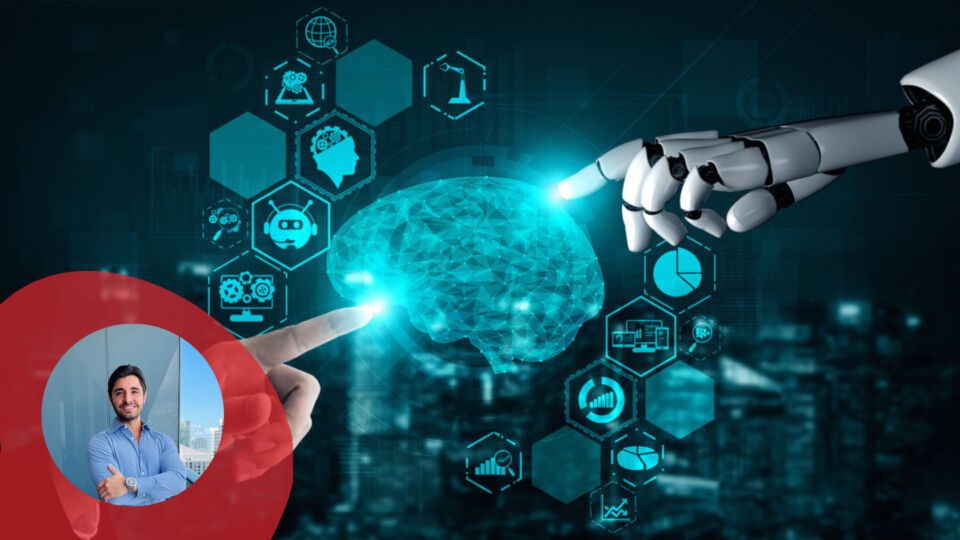COVID-19 fundamentally changed the way people shop and interact with brands. As the rise of ecommerce continues to accelerate, consumer behavior is changing at lightning speed. But without access to in-person consumer panels throughout the pandemic, many CPG brands struggled to keep a pulse on their customers’ preferences and demands around product taste, packaging, price and more.
Now as we approach a light at the end of the COVID tunnel, leading CPG brands aren’t running back to focus groups and panels. Rather, they are differentiating themselves with a more efficient and accurate way of harnessing consumer data, through AI-powered digital sensory analysis.
The Modern-Day Downfall of the Consumer Panel
The rise in smart devices, online shopping and ecommerce has been steadily creating a consumer-driven market. Thanks to services like Amazon and Uber, customers today expect and want more on-demand and personalized experiences. This movement, while opening up more opportunities, has also placed more pressure on brands to know their customers inside and out.
In fact, pressure is an understatement. According to Harvard Business School professor Clayton Christensen, out of the 30,000 new consumer products that are launched each year, 95% fail. Without accurate insights into consumer needs and wants, brands are setting themselves up for failure. Despite this elevated risk, many companies are still reliant on unreliable methods of collecting consumer data.
The consumer panel has been a staple research method for acquiring consumer opinion and feedback on product ideas and trends for decades. However, poor sampling, size limitations, high costs and margin of human error can leave companies with data that’s inaccurate or already outdated by the time brands have time to course correct. When COVID struck, brands were forced to part ways with this archaic method and think outside the box.
The leaders that emerged found a more efficient, agile way of harnessing consumer data. And believe it or not, the data needed was available right at their fingertips online. The key was in compiling this information — millions of data points, to be exact — with real-time analysis to uncover actionable insight.
NLP: The New Frontier in Product Personalization
Thanks to social media, opinion platforms and online review forums, brands have access to the consumer mind like never before. However, without the right technology, all this impactful data sits untapped — when it could be guiding product development, differentiation and SKU rationalization.
AI-powered Natural Language Processing (NLP) can rapidly process and ‘understand’ human language’s full meaning, intent and sentiment by quickly assessing and interpreting large amounts of raw feedback and data. Many CPG brands are leveraging NLP to achieve digital sensory analysis — or in other words, to understand and measure customer preferences on taste, smell and more with technology. NLP-driven methods have an accuracy level that competes with human analysis — and it’s only primed to improve.
And if you’re skeptical about NLP’s accuracy in understanding consumers, take a look at the other industries leveraging it for similar use cases. Translation companies have been utilizing NLP applications to automate and interpret drastically different languages, such as Mandarin to English. Even companies in the legal and medical fields have started to apply NLP to translate industry jargon into more digestible and actionable language.
Transforming Insight to Earnings and Loyalty
NLP solutions can glean insights in real time that other methods — or even humans — could misinterpret. This translates into product recommendations that improve customer experience and loyalty, differentiation and revenue. For example, a reference to the word “expensive” on social media would ordinarily reflect a pain point in cost. NLP goes deeper to evaluate context. It could discover that customers are praising the product’s quality, suggesting it’s time to increase the price instead.
Improving the customer experience with insight like this doesn’t just create mutually beneficial relationships between brand and customer. It also significantly drives up revenue and reduces cost. According to a study in Harvard Business Review, companies that provide better experiences received 140% more spend from customers and decreased customer care costs.
Brands can also apply NLP to improve their SKU rationalization and overall in-store competitiveness. For smaller brands that sell at larger retailers, optimizing inventory within a limited shelf space is critical. NLP can segment customer feedback by region and retailer to gain insight into specific product performance, to help brands decide which goods to keep on the shelf. In this way, brands can maximize their probability of success against their competition.
The ability to evaluate responses quickly and accurately allows brands to better engage and understand customers, predict market trends and provide more personalized product experiences. Unlike traditional models of data collection and consumer panels, digital sensory analysis is a path to a brighter future. It breaks down the barrier to millions of customers’ honest feedback, opinions and reviews. Essentially, it allows the customer to work for you.
With your own customers (and millions of untapped customers) guiding product development and adjustments, how can your brand fail? With NLP, personalization and differentiation is just the beginning. It’s time to unlock a whole new level of customer loyalty, retention and profitability.

Frank Pica is CEO and Co-founder of Native AI, a platform that uses end-to-end data and AI to help CPG companies understand consumer preferences and create products that people love. He previously served as advisor to the web-based 3D & AR Solution provider for eCommerce Vertebrae Inc. (acquired by Snapchat NYSE: SNAP), as well as VP of Adyoulike, a leading advertising technology platform that uses AI to improve the return on investment of Fortune 500 brands. Pica is also a founding member of the AI-enabled marketing platform LockerDome.




